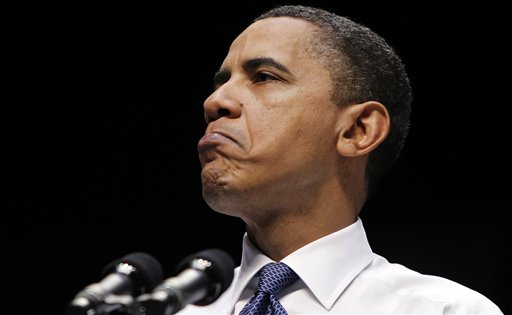The president's policy goals are reflected in his personal money management, according to an expert who reviewed the tax returns the country's chief executive made public after paying his family's annual bill to the government he runs.
The president's policy goals are reflected in his personal money management, according to an expert who reviewed the tax returns the country's chief executive made public after paying his family's annual bill to the government he runs.
In what has become a presidential tradition — and one that has a parallel in the personal financial disclosures by members of Congress — President Barack Obama on April 18 revealed that he and first lady Michelle Obama paid $453,770 in total federal taxes on an income of $1.73 million, the vast majority of which came from sales of his books.
The first family's returns illustrate taxpayers who take advantage of tax-favored plans to save for college tuition for their daughters Sasha and Malia.
The Obamas are investing up to $60,000 in the educational future of each of their children and have been taking the $12,000 annual tax exclusion since 2007, according to Lou Hutt, managing member of Bennett Hutt & Co. LLC.
The practice dovetails with Mr. Obama's efforts to put education near the top of his policy agenda. He has called for the United States to reclaim the top spot in the world for the country whose citizens have the top educational attainment.
“It is the purest form of transparency,” Mr. Hutt said of the Obamas' making their tax returns public. “I saw a pretty consistent case that he's putting his money where his mouth is.”
The Obamas also gave $245,075 to 36 charities and paid $51,568 in Illinois state taxes.
His return clearly demonstrates that Mr. Obama is among the high-income individuals who he says should be paying more in taxes to reduce the federal deficit. As someone who earns much income outside of his full-time job — essentially freelance writing — the president is following a wise tax practice by paying his federal levy quarterly, according to Mr. Hutt.
Mr. Obama also allocated the maximum amount he could in retirement funds in 2010.
“This is an opportunity to generate a tax deduction and save tax money while investing wisely in yourself,” Mr. Hutt said. “It hits all three of those key tax-planning objectives for self-employed individuals.”
Looking ahead to 2011, Mr. Obama might want to put some thought into obtaining tax credits to make his Chicago home more efficient, according to Mr. Hutt. Such retrofitting is a policy that Mr. Obama has promoted as part of his energy agenda.
The tax credit this year is scheduled to decline from to $500, from $1,500. But if the savings generated from improvements exceed the cost of making them, it could be a worthwhile move for the Obamas.
“It requires a little bit of financial analysis,” Mr. Hutt said.
The tax returns of Vice President Joseph Biden and his wife, Jill, show that they were subject to the alternative minimum tax, according to Mr. Hutt. They paid $14,479 in Delaware taxes.
The AMT tends to hit taxpayers hardest in the Northeast, Mr. Hutt said. The Bidens likely will have to deal with the AMT for the foreseeable future as Congress searches for revenue to reduce the federal deficit.
“I think repeal is not very likely in the next couple years,” Mr. Hutt said.







